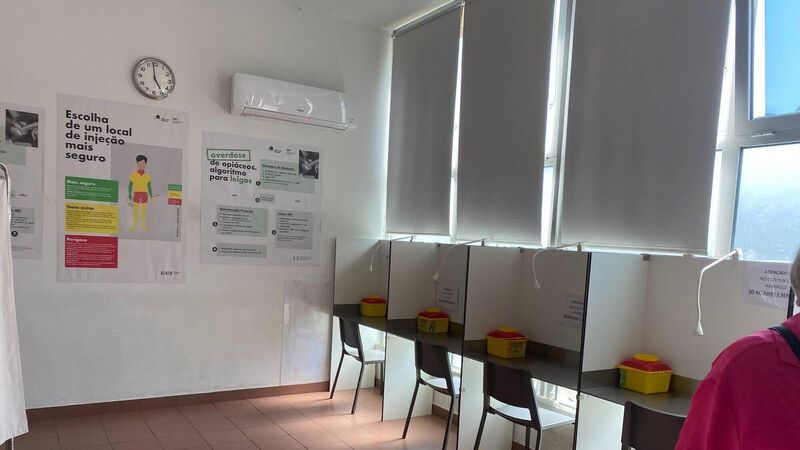Lisbon visit gives Cork officials positive insight into supervised injection facilities

Portugal's medically supervised drug injection centre.
Bopping his head happily to music on his headphones, a young man calmly cleans his arm, draws a syringe full of heroin and plunges the needle into his veins.
Next door, five men sit around a table chatting as they smoke crack cocaine, unbothered by people walking past the large windows into the room that permit supervision.













